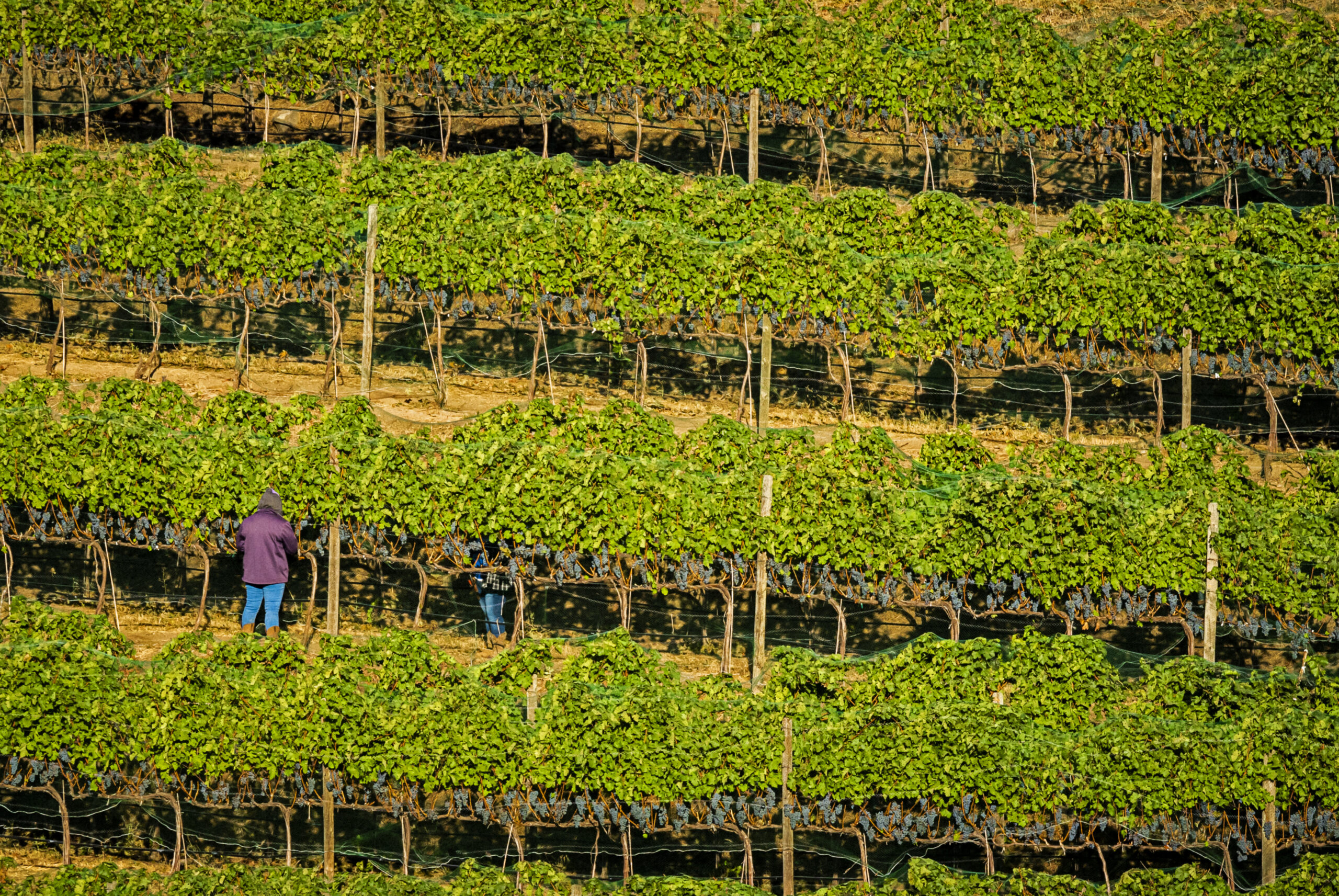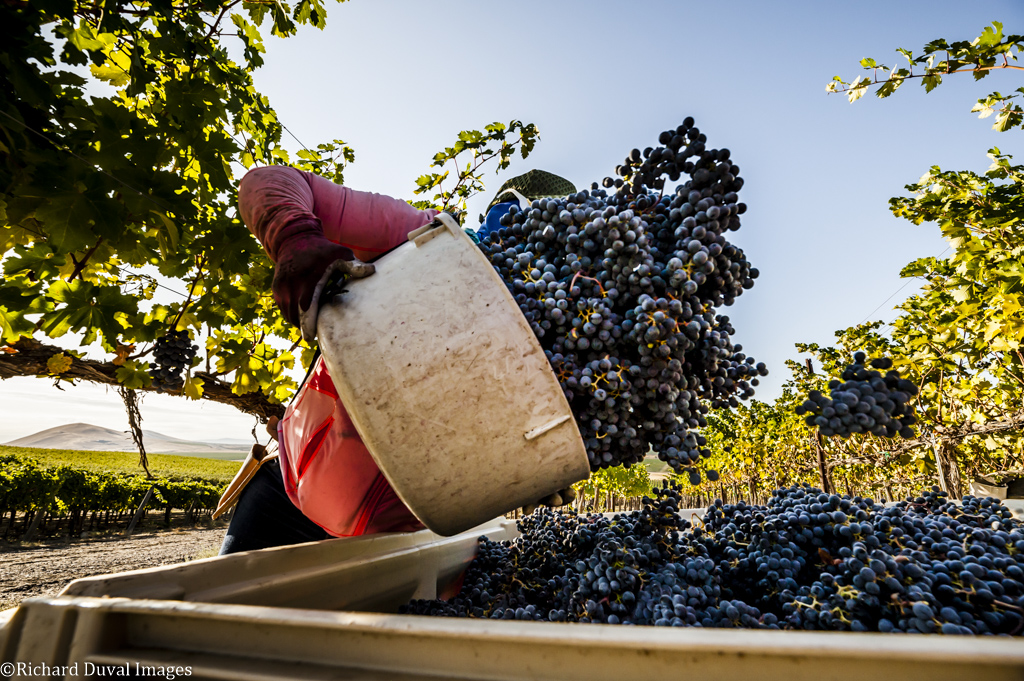What do you wish more people understood about the connection of farmers to the wine in their glass?
On April 6, 2022, Forbes published an in-depth article about Breaking Ground, highlighting the program, how it began, and what we hope it will become. You can read the article here, which was written by Jillian Dara, but because you can only fit so few people in one article (that article featured two of our ambassadors), we wanted to share how our other farmer ambassadors responded to the questions Jillian asked our farmers. In this five-part series, you’ll find the questions that Jillian asked our farmers, and you’ll get to hear from the farmers who responded to them. You’ll also see them in both English and Spanish. We hope you’ll enjoy getting to see some of the making of Breaking Ground, and that afterward, you’ll join us in raising a glass to those who grow our grapes.

¿Qué le gustaría que más personas entendieran sobre la conexión de los agricultores con el vino en su copa?
Jaime González: El compromiso, esfuerzo y dedicación qué hay en cada uno de nosotros para el cuidado de los viñedos.
Miriah Falce: El gran vino comienza en el viñedo con las manos que les dan tiempo, atención y cuidado, todas las manos. Hay tantas personas que están detrás del nombre de un viñedo que trabajan de 6 a 7 días a la semana regularmente, más de 10 horas al día, en los días fríos y nevados de enero y en los días abrasadores de julio. Hay quienes realizan las tareas importantes de la poda, el raleo de brotes y deshoje que son importantes para la maduración y la obtención de la mejor fruta para crear el mejor vino. Todas estas voces silenciosas hacen que el vino de Washington sea lo que es y espero que la gente empiece a entender esta conexión que hay detrás de todo mientras beben su vino favorito y leen estas historias.
Todas estas voces silenciosas hacen que el vino de Washington sea lo que es y espero que la gente empiece a entender esta conexión que hay detrás de todo mientras beben su vino favorito y leen estas historias.—Miriah Falce
Bernadette Gagnier: Espero que no suene como un disco rayado en este momento, pero como mencioné antes, los agricultores y la agricultura son tan importantes para el vino como los enólogos y el proceso de elaboración del vino. Sin uvas no habría vino. Estos son los trabajadores anónimos y no reconocidos que se esforzaron tanto para llevar a Washington Wine a los consumidores en los EE. UU. y el mundo.
Brittany Komm: Para algunos de nosotros, esto es una pasión. Ponemos nuestra sangre, sudor y lágrimas para asegurarnos de cultivar la mejor fruta posible. Muchos de nosotros incluso tenemos conexiones especiales con botellas específicas. Tenemos historias que conozco que podríamos contar a los consumidores sobre algunos de estos vinos que personalmente les encantaría escuchar. Ver como reaccionan los consumidores cuando me han dado la oportunidad de compartir mis historias personales y conexiones con muchas botellas diferentes en las cual participé en la creación de estas es la guinda del pastel para mí. Los consumidores quieren escuchar estas historias. Quieren conocer la historia de principio a fin y este programa ahora les va a dar esa oportunidad. En última instancia, como viticultores, estamos ayudando a elaborar algo que la gente va a disfrutar en los buenos y malos momentos. Se harán recuerdos; se llorarán lágrimas y se compartirán risas con botellas de vino; y ahora la gente sabrá toda la historia de la vid al vino. Como agricultores, somos los guardianes de las uvas.
Se harán recuerdos; se llorarán lágrimas y se compartirán risas con botellas de vino; y ahora la gente sabrá toda la historia de la vid al vino.—Brittany Komm
Sadie Drury: No se puede hacer un gran vino sin uvas de calidad. La habilidad que los agricultores ponen en los viñedos es lo que permite a los enólogos hacer vinos sobresalientes.
Rosanna Lugo: Me gustaría que más personas pudieran ver el trabajo que se necesita para llevar el vino a la copa desde el viñedo hasta la producción. El número de horas que lleva asegurar que las uvas cumplan con los más altos estándares para las bodegas y a la botella/copa. Darles un pequeño “vistazo” de por qué necesitamos pre podar, podar a mano, deshijar, amarrar/entrenar, recortar racimos, programar el riego y por qué y cuánto, plantar y volver a plantar, etc.… es una habilidad y no solo un trabajo!

